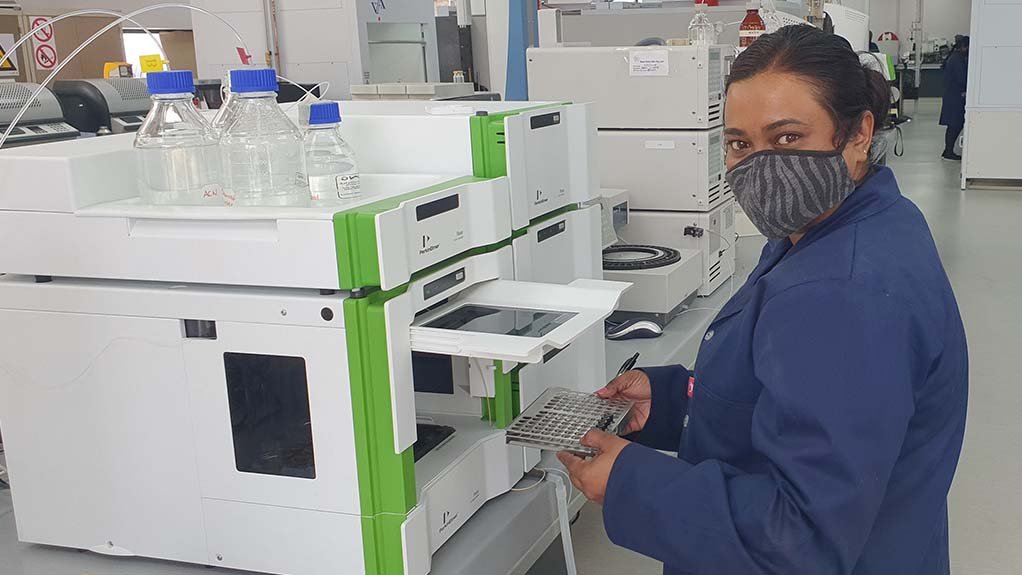SPONSORED POST (Virtual Showroom): Condition monitoring specialists WearCheck recently invested several million rands in four brand new laboratory instruments for their flourishing transformer division laboratories in Johannesburg, Durban and Cape Town.
WearCheck MD Neil Robinson says the company’s investment in the equipment has relieved some of the current sample volume pressure and reduced turnaround times in line with customers’ expectations, ensuring that transformer oil samples are processed and analysed even faster than before.
WearCheck’s transformer division now has two new additional high-speed gas chromatographs (GCs) in the company’s Johannesburg and Durban laboratories, a new additional PCB (polychlorinated biphenyl) chromatograph in the Cape Town laboratory and an additional new HPLC (high performance liquid chromatography) machine in the Durban laboratory.
“Getting the analytical test results and diagnoses to our customers as fast as possible is a priority for us,” says Robinson, “and our investment in the new instruments has ensured that our transformer sample testing capacity is more than doubled. Our transformer division also recently moved to a new, larger laboratory in Westville, where we offer a wide range of specialist transformer monitoring techniques.”
The new Perkin Elmer GCs - designed and manufactured in the Netherlands - each have a carousel that can hold 120 prepared samples and standards. Added to the 80-sample capacity of the two existing GCs in the Durban laboratory, with more samples being processed at any one time, the sample turnaround time has been significantly reduced.
“One of the great advantages of the new GCs is that they can be pre-loaded with samples before a weekend, and they will continue operating for 48 hours. Our older models require reloading every 24 hours,” says transformer division manager Gert Nel.
“The primary function of the GC is to perform dissolved gas analysis – a highly effective preventive maintenance tool which has formed part of WearCheck’s condition monitoring programmes for more than 10 years,” says Nel.
Nel explains further, “The new PCB instrument determines the presence of PCB in electrical equipment containing insulating oil, which must be tested at least once and after every maintenance event to determine the PCB level. According to the latest version of SANS 290:2017, the current maximum allowed PCB level in oil is 50 ppm (parts per million or mg/kg). If the PCB level exceeds this limit, the oil must be drained and disposed of in an approved manner. As PCB molecules are highly toxic, this is an important test in transformer maintenance and management.
“The additional HPLC,” continues Nel, “separates mixtures of compounds in transformer oil to identify and quantify the individual furanic compound concentrations of the oil. The results enable our diagnosticians to predict the remaining useful life of the paper insulation of the transformer with high accuracy, giving a very good indication of the remaining useful life of the transformer itself.”
Nel observes that new instruments have already reduced sample processing time. “Our transformer customers in various business sectors such as mining, power generation, transport, manufacturing, industrial and marine maintenance are receiving their results at high speed, which enables them to make critical maintenance-related decisions in good time and reduce the risk of unplanned transformer failure.”
WearCheck operates a network of 16 world-class laboratories across Africa and beyond, each of which is fully-equipped with the latest available condition monitoring technology in line with global trends. The company has evolved into a condition-monitoring hub, specialising in used oil and fluid analysis, reliability solutions services, transformer monitoring and advanced field services.
For more information, visit Creamer Media’s Virtual Showroom
EMAIL THIS ARTICLE SAVE THIS ARTICLE
To subscribe email subscriptions@creamermedia.co.za or click here
To advertise email advertising@creamermedia.co.za or click here













